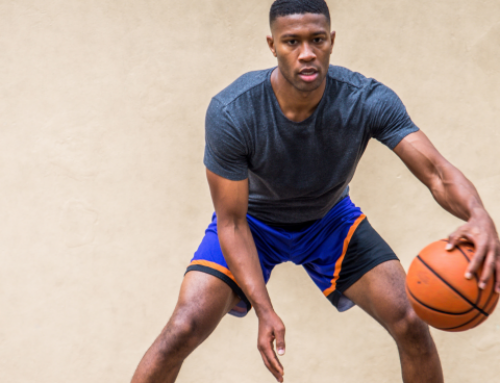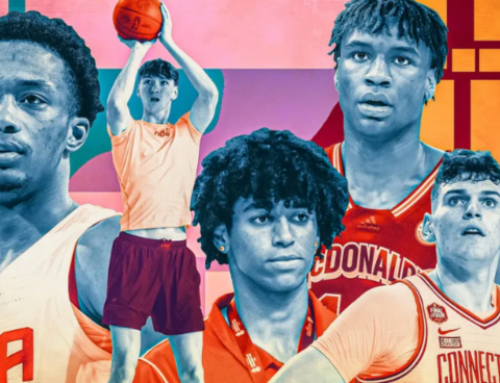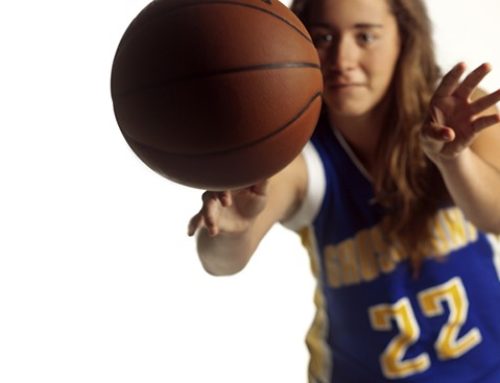Interview with Austin Carr
Interview By Josh Staph
Austin Carr learned the art of scoring on the playgrounds of D.C. A two-time All-American at Notre Dame, he still holds nearly half of the NCAA tournament scoring records, including most points scored in a game (61). After being picked as the first overall selection in the 1971 NBA Draft, he went on to score more than 10,000 career points for the Cleveland Cavaliers.
Check out what the 6’4” high-scoring shooting guard has to say about the playground, the current state of the NBA and Cavs star LeBron James.
STACK: When you were coming up as a high school player in D.C., who were your basketball idols?
AC: Being from D.C., Elgin Baylor and Dave Bing were the guys I looked up to. They were also from the area. Both of them were at the height of their game during that time, so all of D.C. looked up to them.
STACK: What about their games attracted you to them?
AC: They could score the basketball, but they also played a complete game—they could pass it and rebound it, too. Because both of them could hit the outside shot and go to the basket throughout their careers, I wanted to be able to do that. I would attack the basket every time I had a chance.
STACK: What did you do to craft your game to that style?
AC: I played a lot of playground ball, what kids now call street ball—like the Rucker tournament in New York. Also, I was fortunate enough to go to a high school that played good teams all up and down the East Coast, and that gave me the chance to play in a lot of summer tournaments as well. All of this lent itself to playing against tough competition, so I had to hone my game to keep up. I put in a lot of hard work on the playground and stayed after school to practice.
STACK: Did you always want to be a professional player?
AC: Not really. That wasn’t my goal until I was a junior in college and scouts started coming to my games. Until then, I just loved the game and wanted to play it. It was a means for me to get my degree.
STACK: You were the first overall pick in the NBA Draft out of Notre Dame. Many times nowadays, the first pick is a high school player. What do you think about that trend?
AC: There are very few LeBron Jameses, Kevin Garnetts and Moses Malones out there. You hear about these guys who make it, but not the ones who don’t. They are the ones who really struggle throughout their lives, because they always have that dream and never fulfill it. It’s a tough situation, and I’m glad the NBA implemented an age limit this year. Now, kids have the chance to go to college for one or two years and become more of a social human being. They’ll understand the game more and better understand how to deal with people of different nationalities, people in general.
STACK: How has the professional game changed since you were a player?
AC: The big guys can do more now. When I played, there wasn’t anyone like a Magic Johnson, a 6’10” point guard. The bigger guys are much more agile and can do so many more things with the ball. When I played, if you were 6’7”, you had to play under the basket.
STACK: Is there a current player who reminds you of your style of play?
AC: Maybe Dwyane Wade, someone who is always attacking the basket and constantly going after it. I was about his size, and that was basically my game. I wasn’t as aerial as he is with all his dunking, but I had a lot of tricks of my own [laughs].
STACK: As a TV analyst for the Cavs, what is it like for you to watch LeBron’s development up close and personal?
AC: I went through all the same challenges as far as the league and life in general. He is doing a great job, and I tip my hat to LeBron, his mother and his whole support group for keeping him levelheaded. He was born with a great head on his shoulders and great common sense. He has respect for elders and all the things in life that should be respected. A lot of kids now, once they get the money, lose sight of where they came from. LeBron’s turned to me a few times for advice, and I am there to support him when he does.
STACK: What advice do you offer high school basketball players with dreams of playing at the next level?
AC: I’ll tell them what my father used to tell me: Every minute you aren’t working, someone out there is working to be better than you. You will achieve your goals through constant work on the court and in the classroom. I was always taught that you have to have a fallback position, which is why your education is very important. I played for 10 years in the NBA; if it weren’t for injuries, I would’ve played for 14. But I had something to fall back on. Most kids don’t understand that. Even when you get into the league, finishing your education is important. For many athletes, they will be the only ones in their families who will have the opportunity for an education. Take that opportunity; take advantage of the ability you’ve been blessed with. Go to school and graduate from college.
RECOMMENDED FOR YOU
MOST POPULAR
Interview with Austin Carr
Interview By Josh Staph
Austin Carr learned the art of scoring on the playgrounds of D.C. A two-time All-American at Notre Dame, he still holds nearly half of the NCAA tournament scoring records, including most points scored in a game (61). After being picked as the first overall selection in the 1971 NBA Draft, he went on to score more than 10,000 career points for the Cleveland Cavaliers.
Check out what the 6’4” high-scoring shooting guard has to say about the playground, the current state of the NBA and Cavs star LeBron James.
STACK: When you were coming up as a high school player in D.C., who were your basketball idols?
AC: Being from D.C., Elgin Baylor and Dave Bing were the guys I looked up to. They were also from the area. Both of them were at the height of their game during that time, so all of D.C. looked up to them.
STACK: What about their games attracted you to them?
AC: They could score the basketball, but they also played a complete game—they could pass it and rebound it, too. Because both of them could hit the outside shot and go to the basket throughout their careers, I wanted to be able to do that. I would attack the basket every time I had a chance.
STACK: What did you do to craft your game to that style?
AC: I played a lot of playground ball, what kids now call street ball—like the Rucker tournament in New York. Also, I was fortunate enough to go to a high school that played good teams all up and down the East Coast, and that gave me the chance to play in a lot of summer tournaments as well. All of this lent itself to playing against tough competition, so I had to hone my game to keep up. I put in a lot of hard work on the playground and stayed after school to practice.
STACK: Did you always want to be a professional player?
AC: Not really. That wasn’t my goal until I was a junior in college and scouts started coming to my games. Until then, I just loved the game and wanted to play it. It was a means for me to get my degree.
STACK: You were the first overall pick in the NBA Draft out of Notre Dame. Many times nowadays, the first pick is a high school player. What do you think about that trend?
AC: There are very few LeBron Jameses, Kevin Garnetts and Moses Malones out there. You hear about these guys who make it, but not the ones who don’t. They are the ones who really struggle throughout their lives, because they always have that dream and never fulfill it. It’s a tough situation, and I’m glad the NBA implemented an age limit this year. Now, kids have the chance to go to college for one or two years and become more of a social human being. They’ll understand the game more and better understand how to deal with people of different nationalities, people in general.
STACK: How has the professional game changed since you were a player?
AC: The big guys can do more now. When I played, there wasn’t anyone like a Magic Johnson, a 6’10” point guard. The bigger guys are much more agile and can do so many more things with the ball. When I played, if you were 6’7”, you had to play under the basket.
STACK: Is there a current player who reminds you of your style of play?
AC: Maybe Dwyane Wade, someone who is always attacking the basket and constantly going after it. I was about his size, and that was basically my game. I wasn’t as aerial as he is with all his dunking, but I had a lot of tricks of my own [laughs].
STACK: As a TV analyst for the Cavs, what is it like for you to watch LeBron’s development up close and personal?
AC: I went through all the same challenges as far as the league and life in general. He is doing a great job, and I tip my hat to LeBron, his mother and his whole support group for keeping him levelheaded. He was born with a great head on his shoulders and great common sense. He has respect for elders and all the things in life that should be respected. A lot of kids now, once they get the money, lose sight of where they came from. LeBron’s turned to me a few times for advice, and I am there to support him when he does.
STACK: What advice do you offer high school basketball players with dreams of playing at the next level?
AC: I’ll tell them what my father used to tell me: Every minute you aren’t working, someone out there is working to be better than you. You will achieve your goals through constant work on the court and in the classroom. I was always taught that you have to have a fallback position, which is why your education is very important. I played for 10 years in the NBA; if it weren’t for injuries, I would’ve played for 14. But I had something to fall back on. Most kids don’t understand that. Even when you get into the league, finishing your education is important. For many athletes, they will be the only ones in their families who will have the opportunity for an education. Take that opportunity; take advantage of the ability you’ve been blessed with. Go to school and graduate from college.











